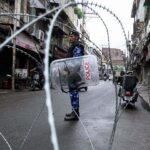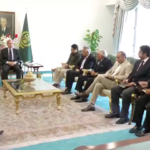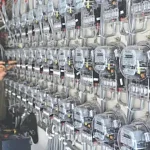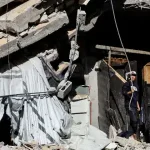An upset is necessary for a reset to occur. A reassessment of each action and result is necessary for an upset to occur. Accepting what went wrong in the past is necessary for a reassessment to take place.
A decrease in ego, conceit, and hedonism is essential for the acknowledgement of wrongdoing to occur. The necessity for a reset is acknowledged grudgingly by significant stakeholders given the current state of affairs in the nation. This recognition may or may not be accompanied by a rethink, review, redesign, or redo of things spiralling out of control.
Stakeholder dynamics are fundamental to politics. Political strategy is heavily influenced by how the establishment and the government interact. Politics is all about skewed views and their creation. The media is a crucial tool for carrying out political communication. The media has a significant impact on how people form and change their opinions, from Hitler’s propaganda to TikTok today. The state institutions, notably the judicial system, play a key role in providing a check and balance to the political inclination of deviating and abusing authority to favour power brokers. Success in power politics or politics for the weak will depend on how a government interacts with or works against these groups.
In our nation, history is being made right now. The coalition of 15 parties won the vote of confidence, removing the government for the first time through a no-confidence motion. The 15 parties, the establishment, the media, and other state institutions all worked together to overthrow a government without filing any charges of corruption against them. Additionally, for the first time, not only have all stakeholders been made public, but they are also under tremendous pressure to change their intentions, behaviours, and actions. Real history is developing that demonstrates how all the forces within the nation, supported by forces outside the nation, have begun to display or suggest a reset. The following are a few examples:
Public opinion of politics and politicians varies. The majority of voters in the historically low voter turnout of about 50% were members of the mass lower class, also known as socioeconomic groups C, D, and E. As you moved up the classes, fewer people were voting because they were sceptical and uninterested in the democratic process. The large-scale votes for C, D, and E were also influenced by local authorities who, in exchange for their support, offered rewards or compelled votes. The wadera, who treated them like slaves and would remove their ID cards and instruct them to vote on a certain electoral sign, was the only person the class E was aware of. Class D and C used the availability of necessities like power, gas, and pakki pavements in their neighbourhoods as a criterion for who should receive their vote. To sway votes in their favour after their terms, the PPP in Sindh and the PML-N in Punjab mastered the art of exploiting and offering basic development advantages.
Also Read: In The Name of Democracy
This persisted for many years, till PTI rose to prominence and forced people to consider their ballot. The socioeconomic class B group was the first to switch from not voting to vote; they acknowledged that in 2013 they cast their first ballot. Exploiting the populace while ruling over the major provinces was the established pattern. There is a reset happening to this pattern. The populace has been shocked into adopting a different way of thinking by the current agitation against a government. The average person has emerged from their shell and begun discussing how to defend their nation from imposters since this change of administration is not based on corruption but rather on standing up to the major bullies, both local and notably US bullies. The popularity of these Tiktok videos speaks for itself. The number is in the billions and keeps increasing. This is a significant rethink and resets for the people who earlier were only concerned about their next meal, their references for jobs, or the transformer on the power pole.
This reset is just getting started. Due to benefits and hazards, heads of institutions find it difficult to leave their positions. Most of them are bureaucrats who have been taught to be silent rather than speak up. But some people have the courage. The chairman of WAPDA, Lt. Gen. Muzammil Hussain, resigned because he did not get along with the new administration. Mohammad Jehanzeb Khan, the Deputy Chairman of the Planning Commission, has also resigned. Keeping quiet is still a common practice for many people. The PML-N warned the current head of NADRA, Tariq Malik, in 2014 not to provide thumb imprints of a contentious constituency. To rescue his family, he had to leave the nation. In a similar vein, Dr Rizwan, the head of the FIA, died after having a heart attack while looking into the money laundering case involving Shehbaz Sharif.
Also Read: PTI vs PML-N: Tackling Economy
Media unequivocally is a business. Whoever provides them with business gets to create or embellish their stories. Media owners are a component of large, varied corporations that rely on the media to increase or defend their corporate influence. Typically, the government is a big client since they provide substantial advertising in exchange for favourable press. Because they did not indulge in millions of commercials, the PTI administration turned out to be detrimental to the media. The PDM administration has already given the media advertisements worth Rs 136 crores in just 2 months. This reveals how the media manipulates which stories will be covered. But despite the pressure and the money, this is what is shamelessly happening. The media relies on the audience. The media outlets are compelled to alter their agenda when the public quits watching channels that are prejudiced. The declining viewership of those not displaying the coverage caused the switch from not broadcasting any Imran Khan speeches to airing all of them. Similar to this, anchors make a tonne of money from their YouTube following. The captive anchors are also compelled to alter their script since those who present a prejudiced view lose viewers while those who present the opposing view make millions. It might not be a change of heart or mind, but it is unquestionably a reset in terms of what ultimately “pays” more.
It’s nearly impossible to alter one’s mindset. What we are seeing is the attitude of the influential stakeholders, who are shocked by the public’s unwavering will to resist being duped. For these stakeholders, a hesitant shift in strategy may occur rather than a change of heart. Even so, it is a first in socio-political history. A fascinating power battle between a coalition of stakeholders and the power of the stakeholder, or public, will be on display over the next few months, making it worth the historian’s time to watch. The outcome of this conflict will decide the country’s future course.








